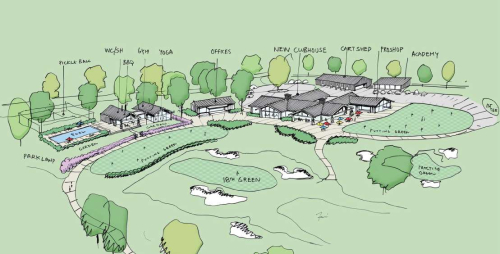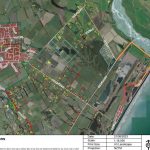
A proposed 170-home development at Hastings Golf Club has encountered significant opposition, with noise complaints from future residents identified as a primary concern in a council assessment.
The development proposal centres on the concept of “reverse sensitivity” – a planning issue where new developments create complaints about pre-existing activities. This concern features prominently in a council report recommending against the project.
Golf Sport Development Limited Partnership (GSDLP) partnered with the golf club to submit the application, which was originally scheduled for a hearing before a Hastings District Council panel next week. However, the applicant recently requested a postponement, citing upcoming government reforms to the Resource Management Act that could significantly impact how productive land applications are evaluated.
The proposal involves transforming the club’s 82.12-hectare site from its current Plains Production Zone designation to a new “Heretaunga Golf Tourism Zone.” This rezoning would enable the construction of luxury residential dwellings alongside an upgraded golfing facility.
The Hastings Golf Club, commonly known as Bridge Pa among golfers, has established itself as a premier venue for competitive golf. The course recently hosted the New Zealand PGA Championship in March, an event that provided the winner with a two-year exemption to compete on the PGA Tour of Australasia.
Recognising the potential for noise conflicts, the development plan includes “no complaint covenants” for all residential properties. These legal agreements would prevent homeowners from filing noise complaints against existing operations – specifically addressing concerns about the adjacent Hastings Aerodrome.
The aerodrome’s location between two golf clubs (Hastings Golf Club and Hawke’s Bay Golf Club) creates a unique planning challenge for residential development in the area.
Council planner Rowena Macdonald conducted a comprehensive review of the application, examining technical reports and considering 104 public submissions before reaching her recommendation. Her assessment ultimately concluded that the development should not proceed, with reverse sensitivity issues playing a central role in this decision.
Hearings panel chair Kitt Littlejohn approved the postponement request last month, determining that the delay was justified given the circumstances. He directed GSDLP to provide regular progress reports on the anticipated legislative changes.









